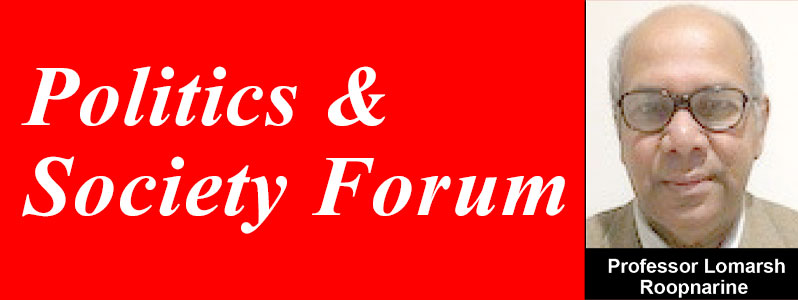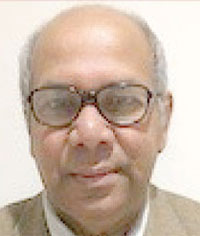THERE has been, in the past two years, an explosion of individuals on social media platforms parading and priding themselves as commentators, activists, and analysts on Guyana in the name of free speech. Some individuals on social media platforms such as FaceBook, YouTube and Tik Tok, that come ready to mind are Benchop, Hinds, Duncan, Burke, Ramayana, Gildarie-Kissoon, Guyana Critic, Globe-span, Guyana Diaspora Connect. I suspect that there are more in the making.
The ascendency of these individuals on social media platforms emanated from the free-wheeling aspects and opportunities of the technological age and era we are living in. The purpose is, however, not too altogether clear other than to vent feelings which are not always coordinated with professionalism. At any given time, but mostly after 7:30 p.m., one can listen and see these individuals on Facebook discussing something about Guyana, demonstrating a marginal relationship with epistemological and ontological assumptions. To find objectivity, which is an essential aspect of competent commentary, is like searching for a needle in a haystack. More worrying is that there is no indication that the previously mentioned would be achieved soon; many of these “shows” have already been developed and descended into a loose and reckless identity, promulgated by a captive and receptive audience.
I am not alone in this assumption. In a letter to the dailies, Attorney-General Mohabir Anil Nandlall called out a forum describing itself as “The Cuffy 250 Committee” to discuss “Resisting the Emerging Apartheid State” as flawed, falsified, and reckless. Ravi Dev, in his weekly column in Guyana Times, notices the rise of the discourse of hate, and urges us “to examine its production, dissemination and consumption in our society.” I concur.
Although these individuals on the social media platforms differ from each other in their views, they share three fundamental similarities. The first is that some are pro-Guyana Government. The second is that some are anti-Guyana Government. The third is that anything goes, and that is, checks and balances of views are simply absent, conjectural, and anti-foundational. Additionally, one would expect the guests on these social media “shows” to be more selective before appearing, and when they do appear, share conceptual opinions that would eventually lead to better ways of thinking and discussing issues of Guyana. The goal of these “shows”, I think, is to bring the street dynamics in our living room or in the palm of your hands.
I have scratched my head thinking how can I analyse these social media shows on Guyana objectively within the domain of world views, especially in the developing world. Philosophical worldviews are a set of beliefs that guide thoughts and actions. I immediately ruled out transformation, a key feature or force in human and societal development. Transformative voices lead to transformative actions, and when combined with politics, plans and policies will and can potentially influence change from bad to good, from moving people from the margin to mainstream positions in society. These individuals do not provide a voice for the voiceless. Quite the opposite happens since most are too distant from the people they are trying to speak about. Others are simply unqualified to speak on some issues. Their narration is ungrounded in sound thoughts and theories. They are not to be taken seriously. It would be remiss of me, however, not to state that some shows are ethnographically oriented with their delivery.
I have also ruled out that the individuals who are running these shows are not constructivists, although they would like us to believe so. Constructivists are individuals who seek to understand the world they live and work in by developing subjective meaning of their experiences through multiple engagements with people and developing theories. They do not presuppose what happens in society; they are not narrow in their thinking because their interpretation is based on constructive characteristics. Just ask one of those individuals on the anti-Government side if the PPP was elected to power. He will say that the Government was installed, and so his position is not inductively generated from his interaction with the larger community. His position arises from what he was told on the social media platform.
What these individuals on the social media platforms would want us to believe is that they are pragmatists in their delivery. Pragmatisms, as a form of philosophy, sensitises us that worldviews emerge from actions, situations, and consequences rather than pre-existing conditions. They seek solutions, and in this case, to Guyana’s problems because they felt wronged.
I perhaps run the risk here (since it is too early) by saying that these loose cannons will phase out or diverge in the long run as so seen in Guyana’s history, for example, the dictatorship, losing its coherence, function and self-radicalisation. I am in effect asking the question, when would these shows implode, what would be the cost and consequence to Guyanese society? (lomarsh.roopnarine@jsums.edu)



.jpg)









